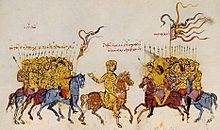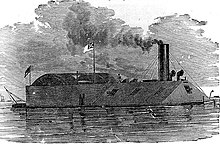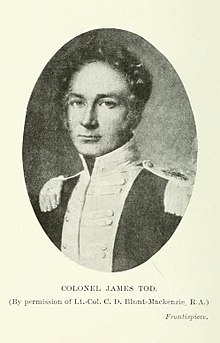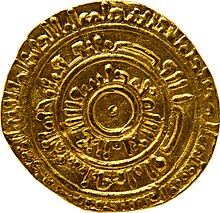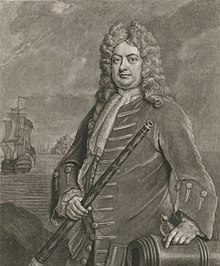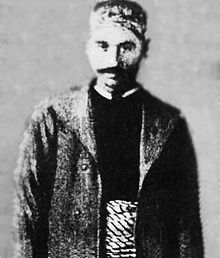Portal:History
The History Portal
History is the systematic study of the past. As an academic discipline, it analyzes and interprets evidence to construct narratives about what happened and explain why it happened, focusing primarily on the human past. Some theorists categorize history as a social science, while others see it as part of the humanities or consider it a hybrid discipline. Similar debates surround the purpose of history, for example, whether its main aim is theoretical, to uncover the truth, or practical, to learn lessons from the past. In a slightly different sense, the term history refers not to an academic field but to the past itself or to individual texts about the past.
History is a broad discipline encompassing many branches. Some focus on specific time periods, such as ancient history, while others concentrate on particular geographic regions, such as the history of Africa. Thematic categorizations include political history, social history, and economic history. Branches associated with specific research methods include quantitative history, comparative history, and oral history.
Historical research relies on primary and secondary sources to reconstruct past events and validate interpretations. Source criticism is used to evaluate these sources, assessing their authenticity, content, and reliability. Historians integrate the perspectives of several individual sources to develop a coherent narrative. Different schools of thought, such as positivism, the Annales school, Marxism, and postmodernism, have distinct methodological approaches.
History emerged as a field of inquiry in the ancient period to replace myth-infused narratives, with influential early traditions originating in Greece, China, and later also in the Islamic world. Historical writing evolved throughout the ages and became increasingly professional, particularly during the 19th century, when a rigorous methodology and various academic institutions were established. History is related to many fields, including historiography, philosophy, education, and politics. (Full article...)
Featured picture
Did you know (auto generated)

- ... that the market hall of Niort opened in 1871 and has been listed as a historic monument since 1987?
- ... that the radio program Radio City Music Hall of the Air employed approximately 10,000 musicians during the first eight years of its broadcast history?
- ... that American Colossus, a history book that describes how a banker bailed out the U.S. government in 1895, was published around a time when the U.S. government bailed out banks?
- ... that despite his distinguished family history, musicologist Yuri Shcherbinin told friends that "what matters most is what you are, not who your ancestors were"?
- ... that Reconstructing Womanhood by Hazel Carby, about the history of American black women writers, was said to be a "landmark study" and "groundbreaking"?
- ... that Eli N. Evans authored three books about the culture and history of Jews in the American South?
Alboin (530s – 28 June 572) was king of the Lombards from about 560 until 572. During his reign the Lombards ended their migrations by settling in Italy, the northern part of which Alboin conquered between 569 and 572. He had a lasting effect on Italy and the Pannonian Basin; in the former, his invasion marked the beginning of centuries of Lombard rule, and in the latter, his defeat of the Gepids and his departure from Pannonia ended the dominance there of the Germanic peoples.
The period of Alboin's reign as king in Pannonia following the death of his father, Audoin, was one of confrontation and conflict between the Lombards and their main neighbours, the Gepids. The Gepids initially gained the upper hand, but in 567, thanks to his alliance with the Avars, Alboin inflicted a decisive defeat on his enemies, whose lands the Avars subsequently occupied. The increasing power of his new neighbours caused Alboin some unease however, and he therefore decided to leave Pannonia for Italy, hoping to take advantage of the Byzantine Empire's vulnerability in defending its territory in the wake of the Gothic War. (Full article...)
On this day
February 15: National Flag of Canada Day; Statehood Day in Serbia; Susan B. Anthony Day in some parts of the United States
- 438 – The Codex Theodosianus, a compilation of the laws of the Roman Empire, was published.
- 1763 – Prussia, Saxony and the Habsburg monarchy signed the Treaty of Hubertusburg, ending the Third Silesian War.
- 1940 – The official premiere of Paul Creston's Saxophone Sonata took place at the Carnegie Chamber Hall, with saxophonist Cecil Leeson, who commissioned the work, and Creston on piano.
- 1979 – Don Dunstan (pictured) resigned as Premier of South Australia, ending a decade of sweeping social liberalisation.
- 2018 – Following nationwide protests, Hailemariam Desalegn announced his resignation as prime minister of Ethiopia, remaining in post as a caretaker until he was succeeded by Abiy Ahmed.
- Gisela of Swabia (d. 1043)
- Matt Groening (b. 1954)
- Mo Tae-bum (b. 1989)
- Dawa Dem (d. 2018)
Selected quote
Who controls the past controls the future: who controls the present controls the past.
— George Orwell, author, in Nineteen-Eighty Four
Related portals
More Did you know...
- ... that Giovanni de Ventura, a plague doctor who may have worn a beak doctor costume (pictured), was restricted by a covenant to treat only infectious patients? In the nose of the mask, there were types of plants that were used to filter the sickness from the wearer.
- ... that in some archaic Greek alphabets, an Ε could look like a Β, a Β like a C, a Γ like an Ι, an Ι like a Σ, or a Σ like an Μ?
- ... that the Chinese government has published a list of sixty-four important cultural relics that are forbidden to be exhibited outside of China?
- ... that the 1886 novel Albertine expedited the abolition of public prostitution in Norway?
- ... that Carl Sagan worked with the US Air Force on detonating a nuclear device on the Moon?
- ... that Olympic gold medals have been made out of silver, jade, and glass?
- ... that in 1945 a Japanese battalion was rearmed to serve alongside the British 5th Parachute Brigade in the Far East?
- ... that Solomon was accidentally castrated as an infant?
Topics
Categories

History • By period • By region • By topic • By ethnic group • Historiography • Archaeology • Books • Maps • Images • Magazines • Organizations • Fictional • Museums • Pseudohistory • Stubs • Timelines • Chronology • People • Wikipedia historians
WikiProjects
![]() WikiProject History •
Ancient Near East • Australian History • Classical Greece and Rome • Dacia • Former countries • History of Canada • Chinese history • European history • Heraldry and vexillology • Indian history • Jewish history • Medieval Scotland • Mesoamerica • Military history • Middle Ages • History of Science
WikiProject History •
Ancient Near East • Australian History • Classical Greece and Rome • Dacia • Former countries • History of Canada • Chinese history • European history • Heraldry and vexillology • Indian history • Jewish history • Medieval Scotland • Mesoamerica • Military history • Middle Ages • History of Science
WikiProject Time • Days of the Year • Years
WikiProject Biography • Composers • Political figures • Saints • United States Presidents
Things you can do
 |
Here are some tasks awaiting attention:
|
Associated Wikimedia
The following Wikimedia Foundation sister projects provide more on this subject:
-
Commons
Free media repository -
Wikibooks
Free textbooks and manuals -
Wikidata
Free knowledge base -
Wikinews
Free-content news -
Wikiquote
Collection of quotations -
Wikisource
Free-content library -
Wikiversity
Free learning tools -
Wiktionary
Dictionary and thesaurus






